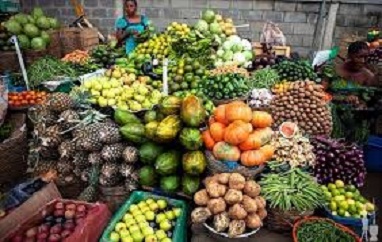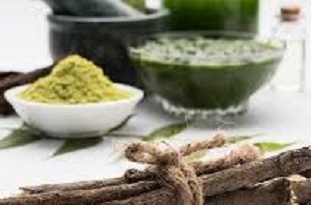Nigerian Fruits: Nature’s Local Candy and Medicine
Nigerian fruits are nature’s sweets. We all love fruits and why not? Fresh fruit is a healthy alternative to candy, desserts and sugar-filled drinks.
We are lucky to live in Nigeria where we have amazing edible fruits year-round.
Nigeria is in the tropical zone and has an abundant source of fruits and vegetables.
The harvests of most fruits are reliant on the two predominant seasons of the country – Dry and wet or rainy season.
On roadside stalls, in the markets, and even in traffic jams, you’ll find pineapples, bananas, paw-paw, grapes, pears, avocado, oranges, apples, guavas, mangoes and a host of other fruits you might not even know.
Being aware that these local fruits are seasonal, one shouldn’t miss them when seen, for it is very affordable and hard to find outside Nigeria (or Africa)
The suggested daily amount of fruit is 1½ to 2 cups, depending on your sex, age, and the amount of physical activity you do.
Fruit’s health benefits are amazing and are well worth incorporating into your meal plan for a healthier lifestyle.
Nigerian Fruits Benefits
As a healthy alternative to eating food items with added sugar, fresh fruit can help satisfy sweet cravings without causing a domino effect.
What’s more, it will impress your taste buds too!
Fruits can also be consumed as a healthy snack, an appetizer, side dish, and natural supplements because of the nutrients they contain.
The fruit is sweet and also contains water and fiber, which help you feel full.
Additionally, the fruit has no cholesterol and is a great source of vitamins, minerals, antioxidants, dietary fiber and folic acids that are beneficial for human health.
Whether you are a fruit lover, or you just like tasting new things, here are some awesome Nigerian fruits with their local names that are a must-try!
Nigerian Fruits:
- Papaya (pawpaw, ibepe)
- African Star Apple (Udara/Agbalumo)
- Velvet Tamarind (Icheku/Licky-Licky)
- Avocados (butter fruit)
- Star Apples (agbalumo, udara)
- Fruit (Tropical Almond)
- Cashew apples (kaju)
- Sea/tropical almonds (fruit)
- Oranges (osan)
- Hog plums (iyeye)
- Water/rose apples (apple)
- Grapefruit (grapefruit)
- Bananas(ogede)
- Watermelon (bara)
- Sour Sop (Shawa Shop)
- Monkey kola (Ube Okpoko/ Atili)
- Tangerine/tangelo
- Mangoes (mongoro)
- Hog Plums-Iyeye'(Yoruba), ‘Ngulungwu'(Igbo), ‘Isada'(Hausa)
- African Pear (Ube)
- Sugar cane (ireke)
- Guavas (goba, groba)
- African Elemi (utu)
Cooking with Fruit
Although most fresh fruits are considered at their best when raw, cooking can intensify flavors and create appealing textures, especially in unripe fruit.
Cooked fruits can be served as side dishes, desserts, sauces, compotes or main dish components.
Cooking Methods
Fruit can be cooked using moist- or dry-heat methods.
Poaching, grilling, stewing and other moist-heat methods are wonderful for dressing up plain fruit.
Compotes and sauces are usually made using moist-heat cooking.
Grilling fruits and vegetables is a great idea, whether or not you’re grilling fish or meat to go with them.
We all need to eat more fruits and vegetables, and this is an appealing way to serve them.
After all, one of the golden rules of eating healthy at restaurants is to choose “grilled” foods over “fried” choices.
That’s because grilled food is generally a healthier choice for amazing desserts, sides, and starters,
Nigerian Fruits Recipe: How to Grill Pineapple, Mangoes and Peaches
If you haven’t grilled fruit yet, you are in for a treat.
Grilling caramelizes sugars and brings out amazing flavors to any kind of fruit.
Ingredients:
1 small pineapple, peeled, cored and cut into wedges
2 large mangoes, cored and cut in half
two large peaches, cored and cut in half
Nonstick, butter-flavored cooking spray
2 tablespoons brown sugar
½ cup balsamic vinegar
Mint or basil leaves, for garnish
Directions:
- Firstly, combine the pineapple, mangoes, and peaches in a large bowl.
- Secondly, spray liberally with cooking spray. Then, toss and spray again to ensure the fruit is well-coated.
- After that, sprinkle with brown sugar and toss to coat evenly. Set aside.
Method
- Firstly, heat the balsamic vinegar over low heat in a small sauce
- Secondly, prepare a fire in a charcoal grill or heat a gas grill or broiler away from the heat source, lightly coat the grill rack or broiler pan with cooking spray.
- Then, position the cooking rack 4 to 6 inches from the heat source.
- After that, place the fruit on the grill racks or broiler pan.
- Carefully, grill or broil over medium heat until the sugar caramelizes about 3 to 5 minutes.
- Lastly, remove the fruit from the grill and arrange onto individual serving plates.
Above all, drizzle with balsamic syrup and garnish with mint or basil and serve immediately.
- What fruit or vegetable do you think is nature’s candy?
For me it’s pineapple and sweet oranges, what about you?
Let me know in the comment section below. I take great pleasure in reading from you.




Pingback: High-Protein Diet: Banana & Honey Smoothie for Weight Loss - 9jafoods